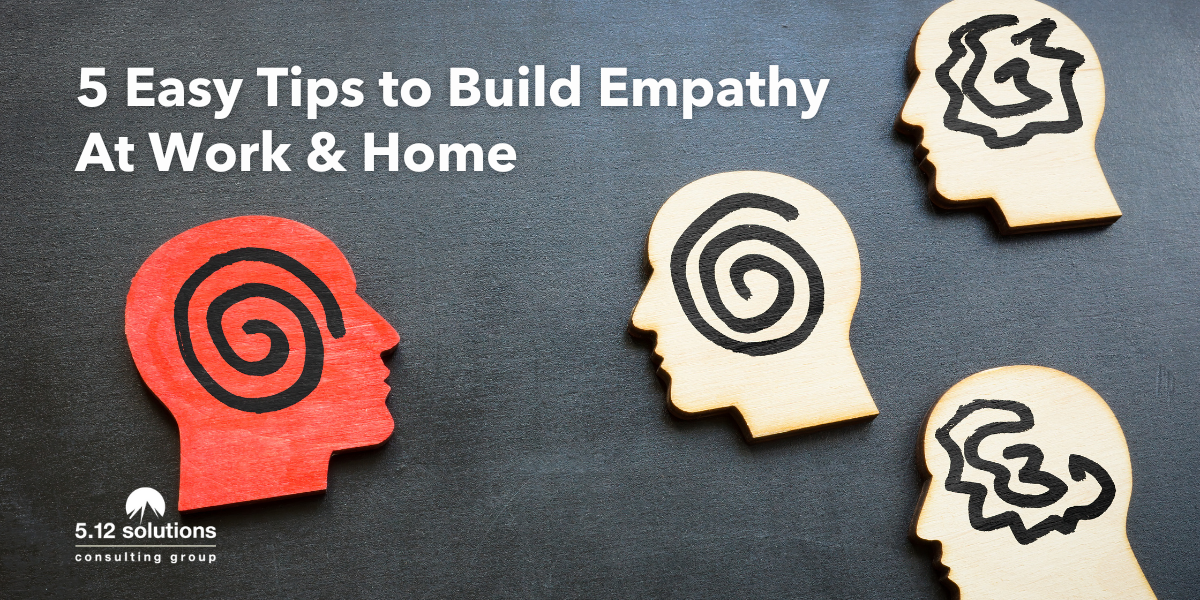“I’m just not empathetic. And, I don’t understand why it’s important. People have equity in this company so that they work hard.”
We were reviewing his 360 data during an executive coaching session and exploring his very low scores in the Relationships dimension of the assessment results. And those were the words the CEO shared with me. Many of you reading this can relate.
Yet empathy – often misunderstood and undervalued – is an essential human trait that plays a critical role in both personal and business settings. Its significance cannot be overstated, especially in an increasingly interconnected and complex world.
Exactly What is Empathy, Anyway?
In an interview on our Future of Leadership podcast with Dr. David Palmiter, a full professor of psychology at Marywood University and certified clinical psychologist with over 30 years of private practice experience, he described empathy as different from compassion or sympathy:
“Empathy is actually connective knowing. It’s experiencing some version of the other. And this is very important in connectedness. The quality of social connection is the one predictor, number one with a bullet, of both physical and mental health long-term. There’s nothing else. The number two factor is a distant second. I’m talking you can do brain scans, you can do blood analysis. You can see how much people are exercising or doing yoga or praying or whatever, and nothing better predicts, in longitudinal research, physical and mental health, better than social connection. Try having social connection of a high quality without empathy. Good luck. Lots of luck.”
Empathy is the ability to understand and share the feelings of another. It’s a step beyond sympathy, which is feeling compassion for someone; empathy involves a deeper connection, where you put yourself in another person’s shoes, understanding their emotions and perspectives. It’s a blend of emotional and cognitive processes.
Empathy in a Business Setting
In the business world, empathy might seem like a soft skill compared to the hard-hitting world of profit and loss. However, its impact is profound.
Empathetic leaders can better understand and meet the needs of customers, employees and team members. And in a complex world that often involves experimentation, cross-functional collaboration and working in a frustratingly matrixed environment, this understanding leads to many benefits:
- better product development
- improved customer service
- higher levels of satisfaction
Moreover, empathy in the workplace leads to a healthier culture that becomes an accelerator for business results. It:
- fosters effective communication
- reduces unproductive conflicts
- builds team cohesion
Empathetic leaders understand their employees’ needs and challenges, which can lead to more effective management, higher morale, and reduced turnover.
Empathy in Personal Life
In personal relationships, empathy is the cornerstone. It allows us to connect with others on a deeper level, understand their experiences, and respond appropriately. This understanding fosters stronger, more meaningful relationships, whether with family, friends, or significant others.
Empathy also plays a crucial role in personal development. It enhances our ability to :
- navigate social situations
- understand diverse perspectives
- and respond compassionately
This not only strengthens our relationships but also contributes to our emotional intelligence.
5 Practical Tips to Build Empathy
If you are like the CEO I mentioned at the beginning of this post, you can still develop your empathetic muscles. Here are a few strategies anyone can incorporate:
- Active Listening: Empathy starts with listening. Pay attention not just to the words being said but also to the emotions and non-verbal cues behind them. This involves being fully present, making eye contact, and avoiding distractions while someone is speaking.
- Open-Mindedness: Challenge your preconceptions and biases. Be open to understanding perspectives that differ from your own. This broadens your understanding of the world and the people in it.
- Vulnerability: Share your own emotions and experiences. Vulnerability fosters a reciprocal empathetic connection. When you open up, it encourages others to do the same, creating a deeper bond.
- Empathetic Communication: Respond to others with understanding and validation. Acknowledge their feelings and perspectives. Use phrases like “I see why you feel that way” or “That must have been difficult for you.”
- Practice Perspective-Taking: Actively try to put yourself in someone else’s shoes. Imagine their background, their challenges, and their feelings. This not only builds empathy but also enhances your problem-solving skills by understanding different viewpoints.
Conclusion: No one cares until they know you care.
Empathy is more than a feel-good concept; it’s a powerful tool for building relationships, fostering a positive work environment, and enhancing personal connections.
By developing empathy, we not only improve our own lives, but we also contribute to a more understanding and compassionate society. Whether in a boardroom or at the dinner table, empathy allows us to connect, understand, and thrive together.
Imagine having a roadmap for creating healthier, more aligned, and deeply human workplaces. When leaders embrace this game-changing model and welcome humanity into their organizational culture, they cultivate a workplace environment where employees can unleash their full potential and find meaning in their work.
Learn more about the six Cs of ‘The Human Workplace Needs Model” in my best-selling book, “The Deeply Human Workplace.”

